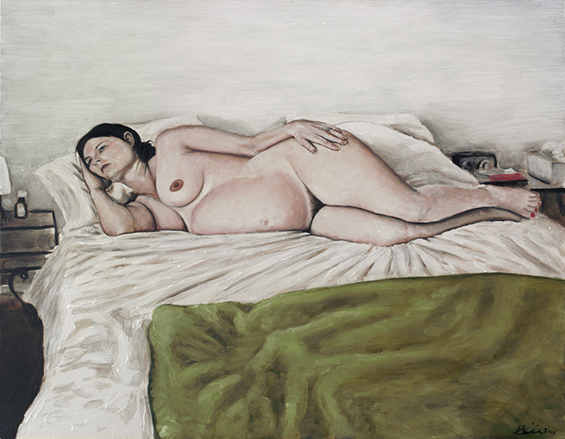
Awards ceremonies are almost invariably tedious and awkward events. This is largely because, whether it is the Oscars or Brewarrina Thirds’ trophy night, the basic format is more or less unavoidable. No matter how lavish the setting, no matter how glamorous the attendees, an awards ceremony cannot escape the reality that it will involve a series of stilted formalities and acceptance speeches, at least some of which will go on for much longer than one might reasonably hope.
Even so, the ceremony for the Prime Minister’s Literary Awards, which were announced in Melbourne on Monday evening, outdid itself in its awkwardness. I wasn’t there (though I did have my spies in the audience), but thanks to the decision to broadcast ‘highlights’ on SBS, I was able to soak up some of the unusually excruciating atmosphere. The Prime Minister seemed to radiate discomfort. Some of this was no doubt due to his awareness that he was not among his natural constituency, and it was perhaps compounded by the fact that his government has not been travelling all that well lately. But it is also the case that much of the evening’s peculiar tension was a direct consequence of the way in which he has attempted to recast the Awards – combined, of course, with the reverse-Midas touch he has miraculously acquired since coming to office.
This year’s Awards began generating controversy from the moment the judging panels were announced, when it became obvious that they had a distinct ideological slant. This particular provocation came to fruition on Monday evening with the announcement of the history prize, which was shared by Joan Beaumont’s Broken Nation: Australians in the Great War and Hal G. P. Colebatch’s Australia’s Secret War: How unionists sabotaged our troops in World War II (Colebatch also took out the unofficial prize for the most rambling and interminable acceptance speech). The latter work, the subtitle of which makes its thesis and its ideological orientation clear, prompted immediate accusations and counter-accusations of political bias along the usual lines.
That was the foreseeable controversy. Things took a stranger turn when the story broke that the judges in the fiction category had, in fact, unanimously decided to give the award to Steven Carroll for A World of Other People, but that the Prime Minister had personally intervened at the eleventh hour, insisting that Carroll share the prize with Richard Flanagan. The redoubtable Les Murray, one of the fiction judges, subsequently voiced his unhappiness with the way in which they had been overruled and derided Flanagan’s winning novel The Narrow Road to the Deep North as a ‘pretentious, stupid book’.
In his acceptance speech, Flanagan observed:
It is often said that politics shouldn’t be about symbols, but acts. But in the end acts are symbols, and symbols are powerful acts.
It is hard to know what Tony Abbott was trying to achieve with this particular symbolic act. As Martin Shaw reminded us, it was not all that long ago that Abbott was dismissing Flanagan, an outspoken critic of his government, as a ‘litterateur’. Shaw notes that it ‘clearly seemed to observers on the night that Abbott was trying to neutralise Flanagan’s political position’. Perhaps that was the intention. But if this was the tactic, it seems to have been poorly thought through – if it was thought through at all. The Prime Minister’s speech struck some odd notes (not least his professed enthusiasm for the erotic fiction of Nikki Gemmell), but it was clearly meant to be conciliatory, as was the announcement that his government would establish a new but rather hazily defined Book Council. To the extent that Abbott’s decision to honour Flanagan was also made in this spirit (if indeed it was), it would seem to have been an attempt at a crowd-pleasing gesture, a demonstration that he is capable of rising above politics. This is a strange enough twist, given the overt moves to politicise the Awards in other ways. But the end result was that Abbott undermined and offended his own judges, dudded Steven Carroll, and granted the articulate Flanagan another opportunity to rebuke him publicly, and this time to his face (which Flanagan graciously accepted).
None of this should take anything away from the many worthy winners on the night. Nor does it detract from Flanagan’s extraordinarily magnanimous gesture in donating his $40 000 in prize money to the Indigenous Literacy Foundation. The winner of the children’s book award, Bob Graham, also showed how a symbolic gesture can be a very powerful and tangible act by donating $10 000 of his winnings to the Asylum Seeker Resource Centre. Despite the controversies, the Awards themselves remain a valuable affirmation of Australia’s literary culture. As Louise Adler observed on the night, literary awards provide ‘genuine encouragement and vindication for the writer’s craft’.
This week Sydney Review of Books features an excellent review-essay by novelist and critic Angelo Loukakis. In ‘Language and Love’, Loukakis reads Michael Mohammad Ahmad’s recent novel The Tribe, ‘a book about a middle-eastern, Muslim “subculture” living in Australia, recorded by one of its second generation sons’. Loukakis admires Ahmad’s ‘sharp and sensual’ language, his just depictions of his characters and the social milieu of their ‘tribe’, and his ability to negotiate the complex issues that arise for any writer whose work speaks from the cultural margins:
Ahmad’s people – by turns proud, confused, passionate, sidelined, abused and feared – might even be gathered up in the terms of sociology or anthropology; or the concept of the ‘tribe’ could be interpreted as ironic. But in the sheer notice he gives his characters, in his account of the makeshift world of a childhood spent in a down-at-heel suburb of Alexandria, with all its corniness and vulgarities (‘Even the handles on the wardrobes are fakes’), and in the affection and concern expressed by the child narrator, there is an authorial purpose beyond the need to simply record, or even reinvent, in fictional terms.
From the Archives this week looks back at some of the books honoured at the Prime Minister’s Awards. Andrew Fuhrmann’s essay ‘Whatnots and Wall Jobs’, is an extended consideration of A World of Other People that pays careful attention to Steven Carroll’s depiction of T. S. Eliot. In ‘Keeping the Darkness at Bay’, Lucy Sussex examines Helen Trinca’s life of Madeleine St John, which shared the non-fiction award on Monday night with Gabrielle Carey’s Moving Among Strangers, expertly reviewed for Sydney Review of Books last year by Bernadette Brennan.
